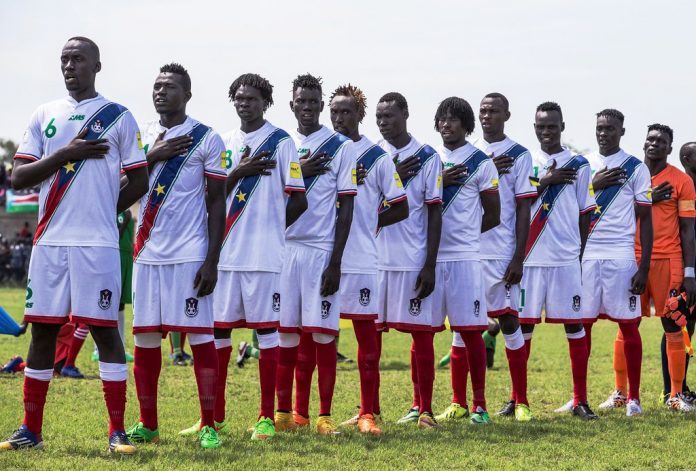Lawmakers in the Transitional National Legislative Assembly (TNLA) on Thursday blamed the continued poor performance of South Sudan’s national football team, the Bright Stars, on the alleged politicization and favoritism in player selection rather than merit-based recruitment.
The concern was raised during the TNLA’s extraordinary sitting, during which legislators adopted and passed the National Sports Development Policy, a document tabled last year by the Ministry of Youth and Sports aimed at transforming the country’s sports sector.
The policy focuses on building and rehabilitating national stadiums across all ten states and the three administrative areas, establishing sports academies and a sports science institute, and training athletes, coaches, and managers to enhance performance standards.
In recent months, the Bright Stars have suffered multiple defeats, including a recent home loss to Senegal, which has drawn public frustration.
Speaking during the passing of the policy, Government Chief Whip James Kueth Chuol said the team’s performance can only improve if the South Sudan Football Federation (SSFF) adopts a merit-based selection system.
“We have been beaten even in our ground (Juba Stadium), all the time, and this is unacceptable. We are beaten because the selection is wrong,” he stated. “We need to avoid this compromise in selection. We will have the best policies, but without guiding principles, we shall not perform.”
According to Kueth, players should be chosen and trained based on their abilities and talents. He urged that the Sports Development Policy address such challenges and ensure that sports are not influenced by politics.
The parliamentarian further accused some politicians of interfering in state tournaments, noting that when teams come to play in Juba, certain politicians attempt to take ownership of them.
His remarks were echoed by Grace Naboi, another MP, who recalled a recent incident during the opening of the Juba National Stadium, where the team’s lineup was changed three times before the match.
“I was disappointed at Juba Stadium. I don’t know how they select the players. Is it because the son of so and so is there?” she asked, adding: “The line-up was changed three times, and the worst thing is that the president was around to watch that game.”
For her part, Speaker Jemma Nunu Kumba said complaints about biased player selection have persisted for years, even during parliamentary tournaments such as the East African Inter-Parliamentary Games.
“Selection of the players objectively and rightly without favor is important because you really have to be selected based on your competence to play and represent a country,” she said.
Meanwhile, Deng Mathiang Ngong, Chairperson of the Committee for Youth and Sports, explained that the National Sports Development Policy is built on five strategic pillars: sports governance and legislation, infrastructure development, sports financing, professionalization and capacity building, and peacebuilding and social inclusion.
Ngong said the committee observed that the policy aligns with the government’s broader vision of harnessing the potential of young people as agents of peace and progress, positioning South Sudan as an emerging hub of sporting talent at both regional and international levels.
The policy further recommends that the Ministry of Youth and Sports be allocated USD5 million to facilitate sporting activities in addition to the national budget.




